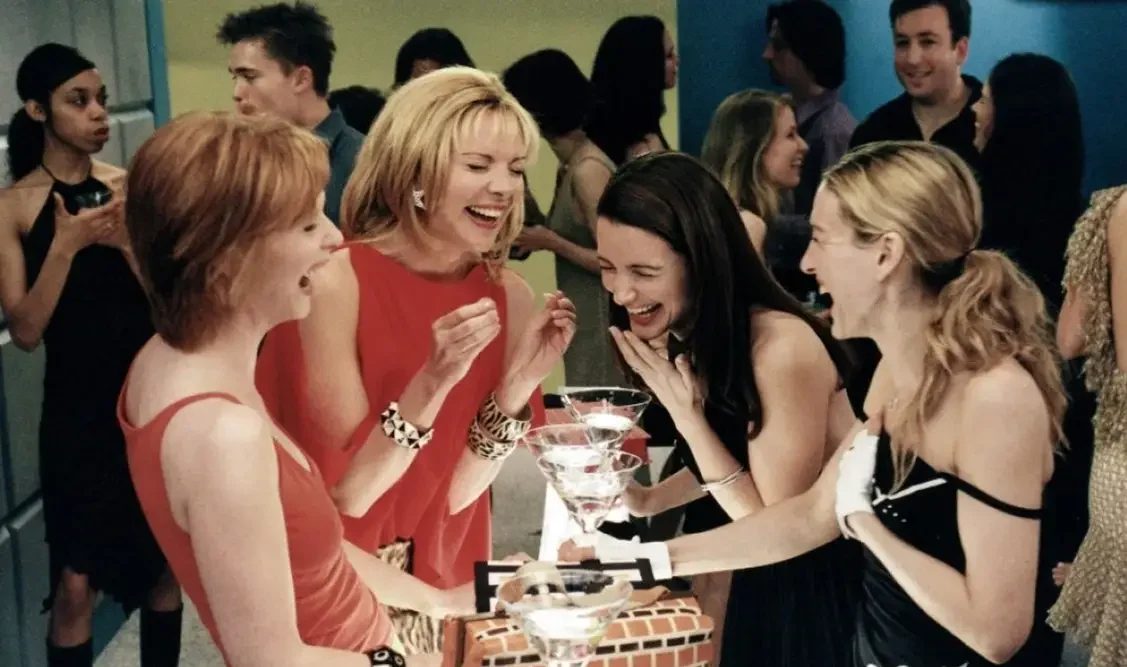1. Get to Know Your Character
Bicks teaches that character, “is the most important thing that we can focus on. Regardless of what form your comedy takes, you have to know who your character is and what your character wants before you can tell me what’s funny about your character.” You’ve probably learned that having an active character pursue their desires is critical to moving your story forward, and Bicks believes it is also a key to comedy. She explains, “You want to spend as much time as you can figuring out who that character is and what drives them.”
In her Master Class, Bicks leads an interactive mock writers room for a pilot. In it, she asks the participants the many important questions it takes to create a well-rounded character from scratch. She suggests starting with the basics, like the character’s gender, age, location and what they do for a living, and then dive deeper into their major flaws, struggles, goals and obstacles to meeting those goals.
2. Test Your Character and Create Juxtaposition
Once you’ve gotten to know your characters, Bicks suggests, “putting them into situations or circumstances that test what we’ve set up as their need or want or fear or perspective and let them try to get out of it. That, to me, is one of the definitions of comedy.”
An effective form of juxtaposition is to, “Tell [the audience] what your character’s weakness is and then exploit that weakness.” For example, Bicks breaks down a scene from the pilot of Barry. She explains that Barry “wants to leave his old ways. He was in the army. He’s a killer. He’s an assassin, and he wants to be an actor. His weakness in this case, is he’s still working through a lot of what he went through as a soldier. The comedy comes from putting these two worlds on a collision course in life.” This collision course has him tracking someone he’s supposed to assassinate into an acting class, partnering with the target for a skit, and discovering that he himself wants to be an actor.
Setting the audience up with certain expectations and subverting them is another way to create juxtaposition. Bicks describes this as, “There’s always this moment in comedy where you think a crisis is averted and then it gets worse. To end on that is hilarious because we’re not watching them not succeed, we’re allowing [the scene] to go out on a great, funny, like you-can-imagine-what-might-happen-next situation.” She elaborates, “You set up your character in a way to win and then in a moment they fail. You pay it off and that payoff can be physical or it can be emotional.”
“If a character’s comedy doesn’t come from their need, want, pain, or discomfort, then probably that comedy is coming situationally and that worries me.”
-Jenny Bicks
3. Let Comedy Rise From Character
Now that your character has been developed and you’ve identified their desires, obstacles and weaknesses, Bicks describes, “You put them into a situation and the jokes come from that.” She continues, “I would think first about what is the situation, then I’m going to test my character and what am I going to do to this character and then let the jokes that you’re writing come from that…You can’t really write jokes in a vacuum. Those jokes have to come from a situation….You don’t want to write jokes that have no grounding.”
While you are supposed to place your character in funny situations for them to get out of, the humor shouldn’t be merely situational. “If a character’s comedy doesn’t come from their need, want, pain, or discomfort, then probably that comedy is coming situationally and that worries me. You don’t want to have things just happen to the character that are funny because it’s not going to be funny to us unless we know how the character wants to respond and can’t.”
Even techniques such as physical comedy should arise out of character. Bicks explains, “It’s funniest when it starts from character versus it just being kind of a cream pie that happens.” Her most critical piece of advice about physical comedy is to “Use it sparingly …. Make sure if you do it, it has a button, or a real ending to the action sequence. Don’t just do it to be funny, unless you have kind of a way to either ramp up the action or give it a really funny button, otherwise it can feel a little lazy.”
4. Make Sure Your Lead Drives the Show
“It’s really important that your lead character is the one who has a need and a drive for each episode.” Bicks warns, “You sometimes can fall into a trap, and I’ve done this, when you have really fun side characters, and sometimes it’s easier to take them on this fun journey, rather than figuring out every week what your lead character is going to be doing.” This is tempting because, “Your lead character tends to be the one that’s a little more rational, so the journey you’re going to take him or her on is never going to be as big and as fun as those you could take the secondary characters on. That’s where B and C stories come in.”
Having the lead character drive the plot is also important so that you avoid them becoming reactive; this is another common screenwriting trap, according to Bicks. She explains, “What you don’t want is having them be reactive and that is a very typical thing to see is a character having things happen to them. And then they’re kind of on their heels, rather than being on their toes. You want them to be the ones driving the action as much as possible.” Having a reactive character quickly becomes less engaging for an audience because they’re not driving the plot forward by actively pursuing their goals.

THE BIG C, Created by Darlene Hunt. Jenny Bicks was a writer and executive producer on the show from 2010-2013.
5. Create Secondary Characters and Foils
“Once you think about your character, what they’re going through, their pain, and the juxtaposition in their life,” Bicks recommends you also ask yourself, “‘Who are the foils for my character? Who’s the character that’s going to bring out the most comedy and truth from my character?’ If you want to bring it down to its simplest form, ‘Who’s the opposite of my lead character?’” An example she give of this is Joey and Chandler from Friends: “The dumb guy had the smart guy.”
On Sex and the City she recalls, “We had four women with very different points of view and that really helped us when we would write comedic scenes or any kind of scenes because you could actually express different points of view through your characters, whether that was comedic or serious. I think it’s the best way to bring out comedy and drama for your characters.” Bicks stresses, “You only need as many [characters] as you have different points of view. Don’t populate your pilot or your show with any characters that share too many of the same points of view because really you want to use those characters as mouthpieces or foils for your [main] character.” She adds, “A foil…can be more than one person, but it’s good to have one person of those people who is really the central juxtaposition to your character.”
Ensuring that your characters have relatable elements grounds them in the real world and allows the audience to connect with them in a deeper way. This in turn allows your comedy to ultimately have greater comedic impact. Characters developed using the strategies above have worked successfully in the past to carry some of our most beloved comedy series, so try employing some or all of them next time you delve into your own pilots and spec scripts.



